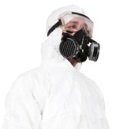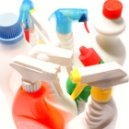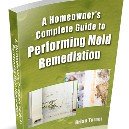Find a pre-screened local mold removal specialist Free Estimate
Find a Mold Specialist Now
Click or Call, Toll-Free 24/7
Mistakes Homeowners Make
When Removing Mold
Homeowners often want to take care of household mold problem themselves rather than hiring a professional in order to save money. The Environmental Protection Agency recommends hiring a professional if you have mold covering a large surface area, but even if you only have a small amount of mold, it’s important to do the job correctly.
Here are some of the common mistakes made by homeowners during the mold removal process, along with tips for avoiding them.
Thinking You’ve Found All the Mold When You Haven’t
Although this is not always the case, often when you see mold in your home, there is more mold that you can’t see. Mold spores are very tiny, very light, and spread very easily from one area of the home to another. If you find mold in one area of your home, it’s very important that you inspect the home thoroughly for hidden mold. Better yet, have a professional come in to help you locate all areas of mold, even if you plan to handle the mold removal yourself.
Thinking Bleach Will Kill Mold
Sometimes it does, but not always. It depends on the type of mold, as well as the surface on which the mold is growing. To be certain of killing mold, use an antimicrobial cleanser instead of bleach.
Painting Over Mold
Painting over mold with mold resistant paint will not kill or contain the mold. The mold will continue growing and spreading under the paint and eventually show through. You may also continue to suffer mold related health problems since the mold is still in your home. You will end up with a much bigger problem in the long run. Mold paint is designed to be applied on mold free surfaces to prohibit the growth of mold.
Trying to Clean Materials That Cannot Be Adequately Cleaned
Mold can be removed from non-porous materials like metal, glass and porcelain, but it is difficult or impossible to thoroughly remove mold from materials like wood, drywall, insulation, carpeting and soft furnishings. Those materials generally need to be removed and replaced. If you’re not sure if moldy materials can be adequately cleaned or not, check with a mold remediation professional for advice or just play it safe and replace the materials in question.
Inadvertently Spreading Mold During The Cleanup Process
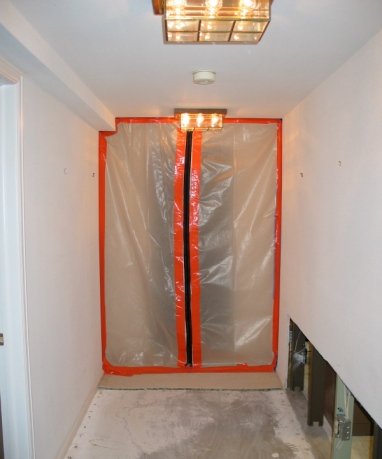 Mold Containment Barrier
Mold Containment BarrierIt’s very, very easy to spread mold during the cleanup process. Scrubbing moldy surfaces, tearing up moldy carpet, cutting out moldy drywall, all these things can disturb mold spores and send them floating about in the air, where they can easily drift into other areas of the home. To prevent the spread of mold, seal off the work area with large sheets of plastic and cover all heating and air conditioning vents, as well. Creating negative pressure in the work area further prevents the spread of mold. Seal moldy materials in 2 plastic bags before carrying them through the house for disposal and remove your outer layer of clothing in the work area so you don’t carry mold throughout the house on your clothes.
Exposing Yourself and/or Family Members to Mold During The Cleanup Process
According to the Environmental Protection Agency(EPA), exposure to mold can lead to a wide range of health problems, including allergic reactions, asthma attacks and respiratory infections. Since the process of cleaning up mold stirs up mold spores, the risk of inhaling mold spores is greatly increased during the cleanup process. Wear protective clothing, including gloves, hair and shoe covers, and an N-95 respiratory mask while cleaning up mold and handling moldy materials. Seal off your work area with large sheets of plastic to protect family members in other areas of the home as well as to avoid spreading mold to other parts of the house. If you’ve been experiencing any symptoms of mold-related illness or have pre-existing conditions like asthma or other respiratory disorders, consult your physician before trying to remove household mold yourself or simply hire a professional to do the job for you.
For Help Avoiding Common Mistakes
We recommend consulting a mold remediation professional, even if you plan to handle the mold removal yourself. Most professionals offer free in-home consultations, so you can get some expert advice at no cost to you. A professional will also inspect your home and help you locate all areas of mold. Follow the link to find qualified mold removal professionals offering free consultations in your area.
Return From Mistakes Homeowners Make Removing Mold To Our Main Removal Page
Free Home Inspection By A Mold Removal Specialist
Search This Website
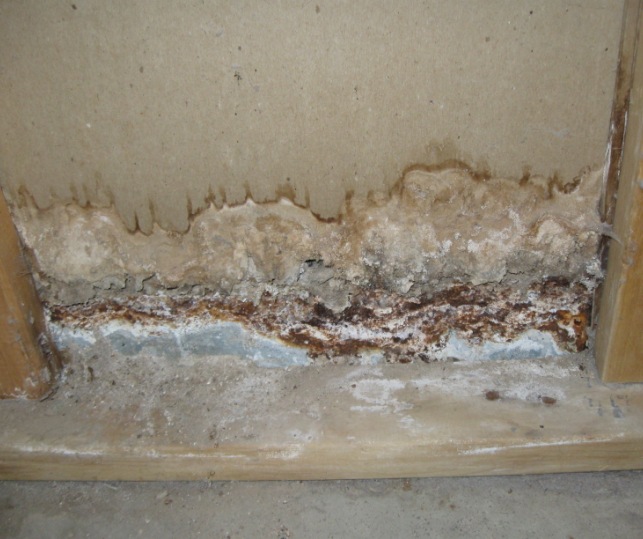 Mold in Basement Wall
Mold in Basement WallRecent Articles
-
See Our 5 Recommended Mold Removal Companies in Covington, KY
Apr 16, 25 12:59 PM
-
See Our 5 Recommended Mold Removal Companies in Wheaton, IL
Jun 20, 24 10:33 AM
-
See Our 5 Recommended Mold Removal Companies in Aberdeen, SD
Oct 08, 21 04:05 PM

